Book of the Day Roundup: October 18-22, 2021
Hunting by Stars
A Marrow Thieves Novel
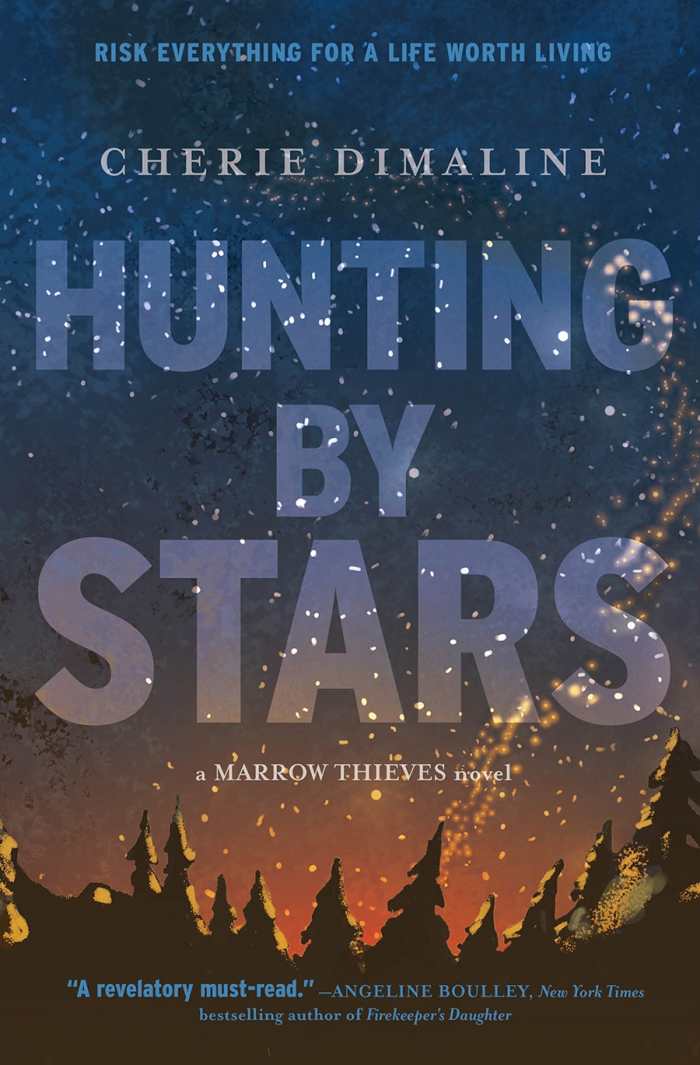
Cherie Dimaline
Amulet Books
Hardcover $18.99 (400pp)
978-1-4197-5347-3
Buy: Local Bookstore (Bookshop), Amazon
Indigenous populations are targeted by wanton forces in Cherie Dimaline’s startling dystopian novel Hunting by Stars.
In the desolate near future, people are unable to dream. It’s a fatal condition that only Indigenous people seem immune to. For this, they are targeted: kidnapped and relocated, they have their marrow stolen by those hoping for a cure.
Rose and French live with a makeshift family in the Canadian wilds, eking by and avoiding government forces. When French is stolen and taken to a retooled residential school, Rose sets out to save him. Both face impossible choices: French, of whether or not to betray his family in exchange for his safety; Rose, of whether she can maintain her love for someone who may have turned against his people.
In this second series entry, there are “new monster[s] in the woods.” Plans are made for unprecedentedly insidious means of harvesting marrow, and ordinary citizens plot to snap up anyone who escapes their clutches. But even as new levels of human depravity are revealed, Rose and her family work to maintain their principled, loving existence, knowing that it doesn’t “take depth to build cruelty, only a profound lack of hope.”
The parallels between the dystopian terrors that the cast faces, and those that Indigenous populations have historically faced, are pronounced: the residential schools of the novel are no more “schools” than North America’s first iterations of them were, and the vitriol and resentment with which citizens speak of Indigenous people is chilling and immediate. Still, there is hope in these pages, in which Rose and her family press on despite monumental challenges, and in which love persists against vicious attempts to snuff it out.
An Indigenous family stays vigilant against reshaped cruelties in Hunting by Stars, a breathtaking dystopian novel about prejudice and persistence.
MICHELLE ANNE SCHINGLER (October 15, 2021)
I Will Die in a Foreign Land
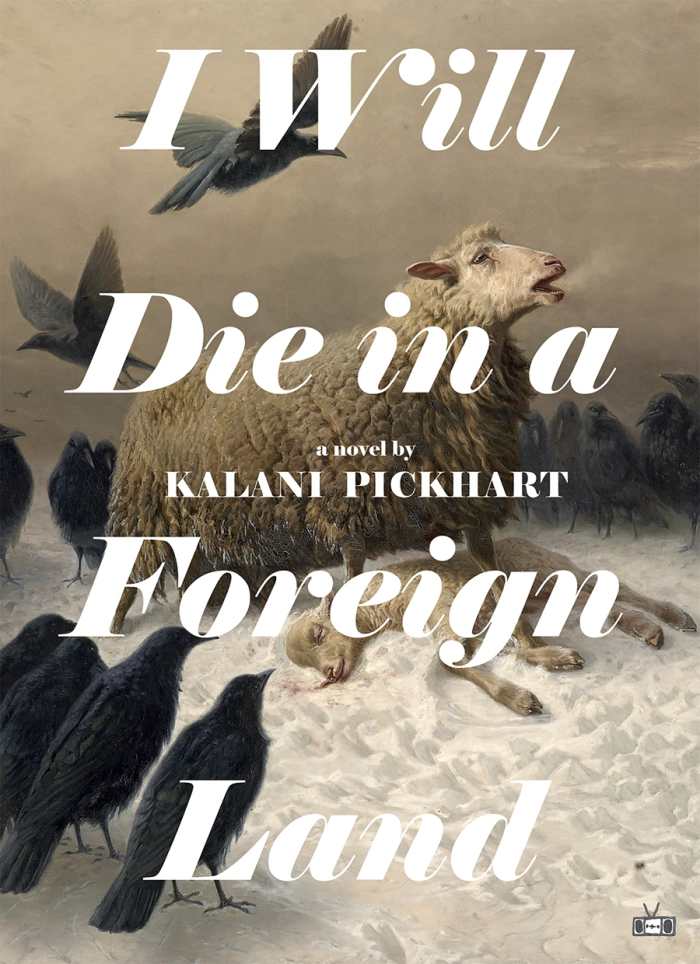
Kalani Pickhart
Two Dollar Radio
Hardcover $25.00 (260pp)
978-1-953387-08-0
Buy: Local Bookstore (Bookshop), Amazon
The 2014 Crimean war becomes the backdrop of a more personal drama in Kalani Pickhart’s novel I Will Die in a Foreign Land.
In late 2013, Ukraine explodes into political violence, which is made worse when Russia annexes the Crimean peninsula early the next year. In Kyiv, Ukraine’s capital, injured protesters converge on St. Michael’s Monastery for protection and care at the height of the conflict. Among those working or sheltering at the church are four individuals whose lives become entwined in ways they never could have predicted. They are Katya, an American doctor who seeks to forget one tragedy by burying herself in another; Misha, a widower who keeps falling for women he cannot have; Slava, an activist who begins a relationship with a woman journalist; and The Captain, a mysterious old man who was injured while playing piano for the protesters. Each is scarred by betrayal, lost chances, and premature deaths, but they still struggle to find purposes for their lives, as well as the people they are meant to be with.
The narrative is interspersed with established facts about the protests and Ukrainian history, as well as with poems about past atrocities and lists of victims who died in the war at its center. This contextual work puts the characters’ troubles in perspective—not by diminishing their pain, but by allowing them to be part of a tragic but proud national heritage. The novel shows that Ukraine and its people have suffered at the hands of a bevy of invaders; its leads are the latest in a long line of people who loved, lost, evolved, and endured there.
The historical novel I Will Die in a Foreign Land is a love letter to Ukraine, its people, and its ability to rise up from piled catastrophes.
EILEEN GONZALEZ (October 15, 2021)
This Fierce Blood
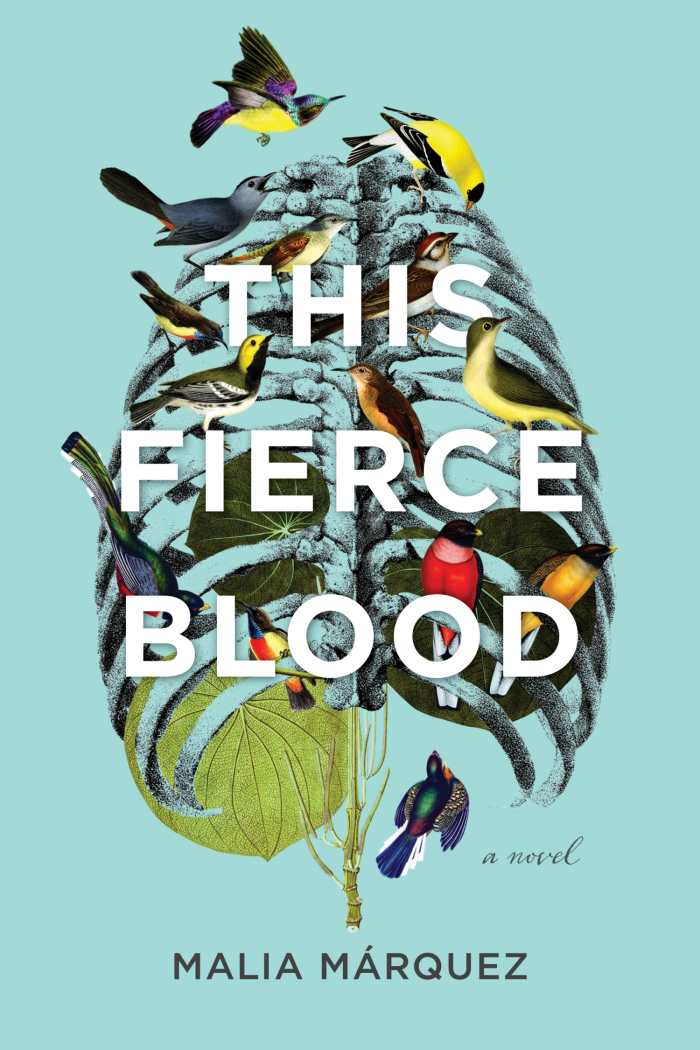
Malia Márquez
Acre Books
Softcover $19.00 (232pp)
978-1-946724-44-1
Buy: Local Bookstore (Bookshop), Amazon
Malia Márquez’s intense multigenerational novel This Fierce Blood incorporates magical realism into its story of three women struggling with family and social expectations.
In Vermont, Wilhemina marries Norwegian Johannes, rather than her longtime best friend, Gideon. After having three children, she begins to have vivid dreams about a cougar and her cubs, in which it is as if she and the animals are connected through memory. Then she sees the animals, who have long been thought extinct.
Wilhemina’s inexplicable connection to nature and the animal world continues in her son’s wife, Josepa, who loses her first husband and cares for her Colorado ranch and her children on her own. Her skills as a healer make her suspect to the local priest; she fights off charges of witchcraft. If she can’t restore the town’s faith in her, her home and family are at risk.
Later, Josepa’s granddaughter, Magda, an ecologist, struggles to understand her teenage daughter. An unexpected inheritance from Vermont has the potential to repair or destroy their relationship.
Magical realism threads through the family saga, with visions and tricksters appearing as matter-of-factly as farm animals and chores. Sharp cultural details illustrate each time period, from dress to social mores. These efficient sketches capture the dualities of church life, Indigenous stories, and scientific explanations coexisting.
All revolves around the women, who are complex and conflicted. They want to do what is right for their children, their homes, and themselves, but often, these goals are at odds with each other in the eyes of society—in 1891, 1918, and in the present. Still, the women arrive at a reconciliation that is true to their often unconscious multiplicities.
Attentive to the pressures facing women across historical eras, the lush novel This Fierce Blood shows the power of strong women staying true to themselves.
CAMILLE-YVETTE WELSCH (August 27, 2021)
Seasons in Hippoland
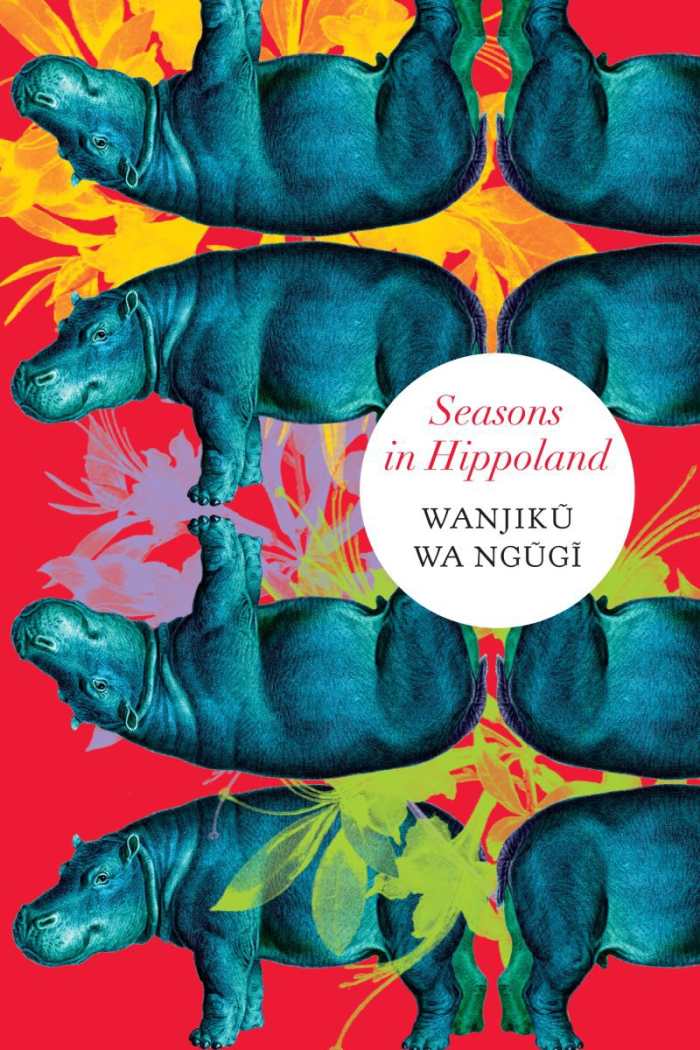
Wanjikũ Wa Ngũgĩ
Seagull Books
Hardcover $25.99 (248pp)
978-0-85742-894-3
Buy: Local Bookstore (Bookshop), Amazon
Wanjikũ Wa Ngũgĩ’s dreamlike coming-of-age novel Seasons in Hippoland is about the power of storytelling.
Mumbi grows up in Victoriana, a country populated by freedom fighters and generals and oppressed by a succession of men in colorful berets. Her parents are partners at the House of Lawyers. She attends Catholic school in Westville, the capital city, where “government ministers zoom… by in Mercedes-Benz sedans, oblivious of the potholes.”
But after Mumbi is caught smoking in high school, she is “exiled,” forced to spend summers with her eccentric Aunt Sara in Hippoland. Mumbi learns to love her aunt and the exotic countryside, with its marshes “where the hippos once belonged,” its monsoon winds, and its marketplace “replete with smells of curry and goat soup and coconut rice and plantains.”
Aunt Sara weaves elaborate tales for patrons at Mexico 86, a beer hall known for dancing, gossip, and stories that are “stewed, strained, mixed and served up to neighbors, friends and foes.” Aunt Sara also has a history of protest and rebellion, and admires Nelson Mandela and Mbuya Nehanda. Mumbi becomes enchanted by her aunt’s tales of love and magic, and by her images of blue porcelain bowls for healing and suitcases full of dreams. In Hippoland, Mumbi also glimpses first love.
After Mumbi learns the arts of storytelling and political protest, she becomes a lawyer like her parents, but she is imprisoned when her aunt disappears under mysterious circumstance. Still, Mumbi is a heroine who prevails, and who maintains her reverence for storytelling: “Yes, stories can be told in any place … We must never stop from reading the book of life. Our world is one big bowl of an unfolding story.”
Part fairy tale, part political parable, Seasons in Hippoland is a powerful novel whose women are resilient and creative in the face of oppression.
KRISTEN RABE (August 27, 2021)
Wild Spectacle
Seeking Wonders in a World beyond Humans
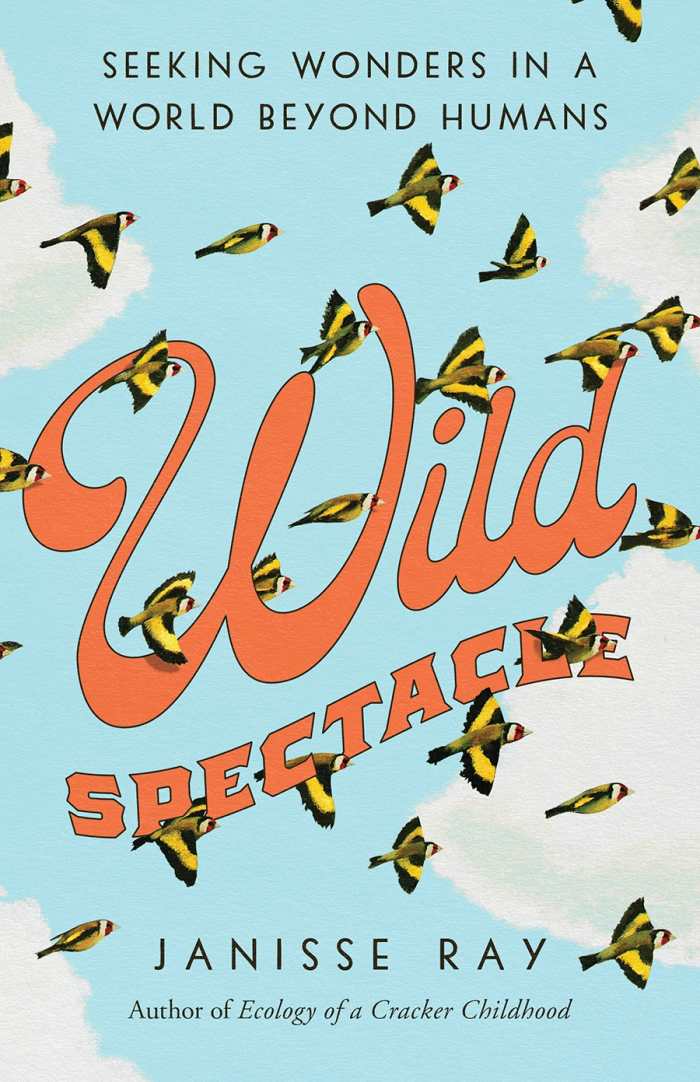
Janisse Ray
Trinity University Press
Hardcover $24.95 (208pp)
978-1-59534-957-6
Buy: Local Bookstore (Bookshop), Amazon
Janisse Ray’s memoir in essays, Wild Spectacle, centers the role of the wilderness in her life.
Throughout the years, Ray has turned to nature in the pursuit of self-discovery, clarity, and adventure. These essays focus on her experiences and reflections in natural spaces in several countries, showing what humans can learn from the wild. In “Snapshots of a Dark Angel,” set in the American Southwest, Ray shares the story of a group of young adults who took a picture with a lizard and then threw it into a scrubby bush. There is a sense of grief in the essay, even before it becomes apparent that the lizard was killed by the act. Afterwards, she posits that people travel to the wilderness to “go back in time, back to the earth.”
Linguistic sketches of flora and fauna abound. The book captures Ray’s joy in nature through its enthusiastic focus on the features particular to the areas she’s chronicling, from Indian paintbrush and silvery lupine in a Montana wilderness, to the black volcanic rock of Sitka, Alaska. The book makes each location tangible through such details.
By centering her personal experiences in the wilderness, Ray raises general questions about humanity’s relationship with nature and itself. In an evocative, vibrant style, she also retreats before answering these questions fully. Still, the importance of preserving and caring for nature is infused in every sentence. She warns about the dangers of some approaches to nature, like ecotourism, noting the increasing damage that human travelling has done to natural spaces; she asserts that people forget that it is “not Nature’s job to entertain.” And her work ends with a lingering question mark—a strong starting point for forging a deeper connection to the wilderness.
Wild Spectacle is an enchanting essay collection about the wonders and lessons that nature provides.
CAROLINA CIUCCI (October 17, 2021)
Barbara Hodge
